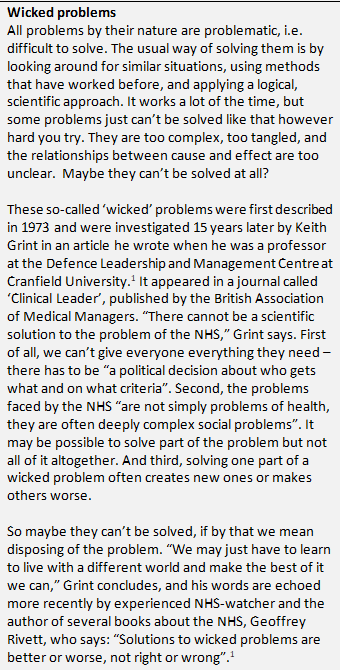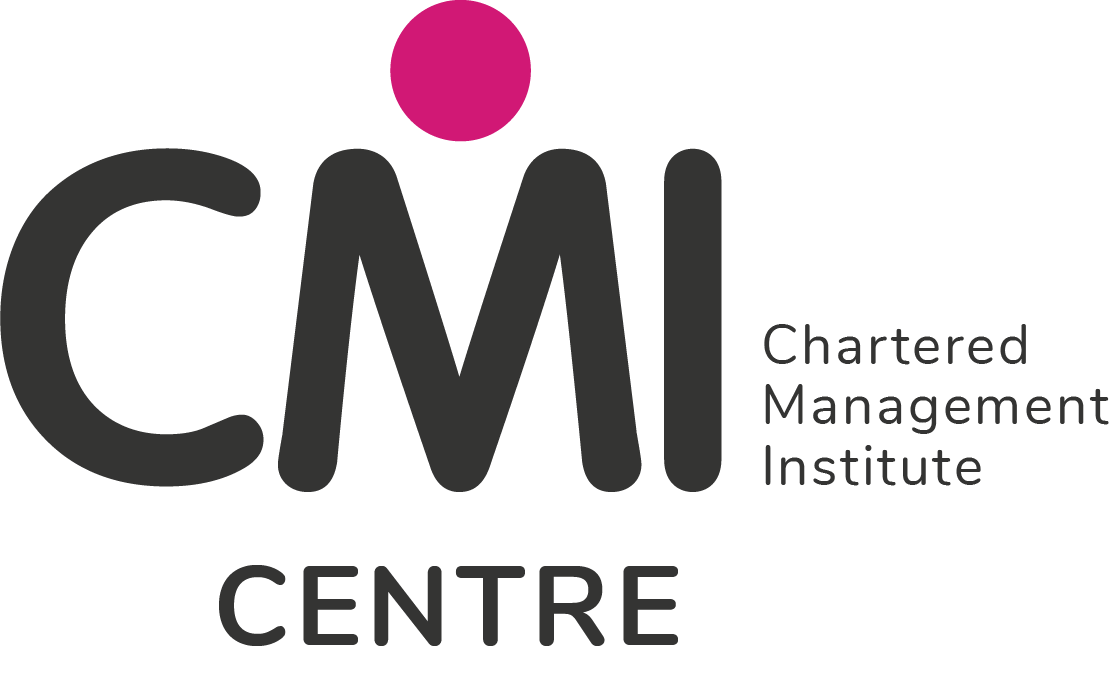Key challenges
There are many root causes. One is the increasing technology behind medical advances, which is fantastic in many ways but is also a challenge for any modern healthcare system.
Drugs and equipment were fairly basic when the NHS started. Seventy-five years on, science and the healthcare industries have produced ever more ingenious answers to illness and health conditions for which there was no cure before. It’s amazing stuff, for sure, but ever-increasing complexity means that new solutions are hard to achieve, cost more, and are relevant to fewer people. The fact that we can cure more and more complex conditions is wondrous, but in an organisation whose guiding philosophy is ‘healthcare free to all at point of treatment’, such a brilliantly ethical position poses complex questions of cost and return on investment. Finding an answer is a truly ‘wicked problem’.
Let’s look at what Sir Gordon Messenger thinks. Two observations stand out, he says. First, “the very real difference that first-rate leadership can make, with many outstanding examples”. Second, “that the development of quality leadership and management is not adequately embedded or institutionalised in our health and care communities”. Contradictory? Not necessarily. It seems to me that the implication is simply that what great examples of leadership and management there are in the NHS is often more down to raw talent in a few than it is through any purposeful design to grow, nurture and develop generate talent across the board. It’s not that the will and the talent to lead and manage well isn’t there, it’s just seemingly not being harnessed as it should be.
Let’s look at what Sir Gordon Messenger thinks. Two observations stand out, he says. First, “the very real difference that first-rate leadership can make, with many outstanding examples”. Second, “that the development of quality leadership and management is not adequately embedded or institutionalised in our health and care communities”. Contradictory? Not necessarily. It seems to me that the implication is simply that what great examples of leadership and management there are in the NHS is often more down to raw talent in a few than it is through any purposeful design to grow, nurture and develop generate talent across the board. It’s not that the will and the talent to lead and manage well isn’t there, it’s just seemingly not being harnessed as it should be.

One option is to go to expensive but publicly credible consultancies. They always have the answers – right? If you’ve read my blog on the potential pitfalls of consultancy, you’ll know my opinion that consultants don’t usually hang around for any issues that arise later on, after their initial fixes are applied. They might then called back in to then address the second order issues that have emerged. It can become a cycle of problem, consultancy, fix and back to problem. Great business for consultancies, less good for the NHS.
Perhaps more managers are the answer? Questions about the size of the management layer in the NHS always seem to crop up. Often – and I say this with confidence as both my parents were in the NHS – it’s viewed as having too many managers. Recent research contests this5. Whether we need more or less, perhaps numbers of managers is the wrong thing to get fixated on. A better question to ask might be, how could the NHS develop and get more support for the leaders and managers it already has? Afterall, this would seem to be what Sir Gordon was suggesting and he had a good look at the organisation.
Wouldn’t it be a better option, therefore, to provide more training for the leaders and managers in the NHS already, so that they are better equipped and able to deal with the problems they face, wicked ones included? The current mangers (including doctors and nurses in management positions) have some tremendous advantages after all:
- They know the organisation better than anyone else
- They know the issues better than anyone else
- They know who the key stakeholders are better than anyone else
- It’s in their interest and that of their teams to get it right and see solutions through – they have more motivation than anyone else
- They’re in it for the long haul – they’ll be around to see things to the finish, however long it takes
- They probably care more than anyone else – at least one can assume that as a general rule, by virtue of the fact they’ve already chosen to work in healthcare, their personal values align to the core purpose of the NHS (to provide high quality care) than consultants would

When it comes to helping to fix the NHS, I’d say improve conditions as well as pay and spend a bit more on giving its leaders and managers – and that includes nurses and other front-line staff – the leadership and management tools they need to do their jobs. I’m with Sir Gordon. PMPT.
I firmly believe that leadership and management can change lives. When it comes to the NHS, it can literally save them. So, let’s see more investment in leadership and management training to get more hospitals achieving improvements like Croydon did, to address the issues Sir Gordon picked up on, to provide better healthcare for all of us, and to restore the NHS to its rightful place as a jewel in the crown of the UK!
Winter has come and hopefully will soon be easing. The NHS has the summer to try and reconfigure itself for the future and ahead of the next winter. Here’s hoping it uses that time wisely.






